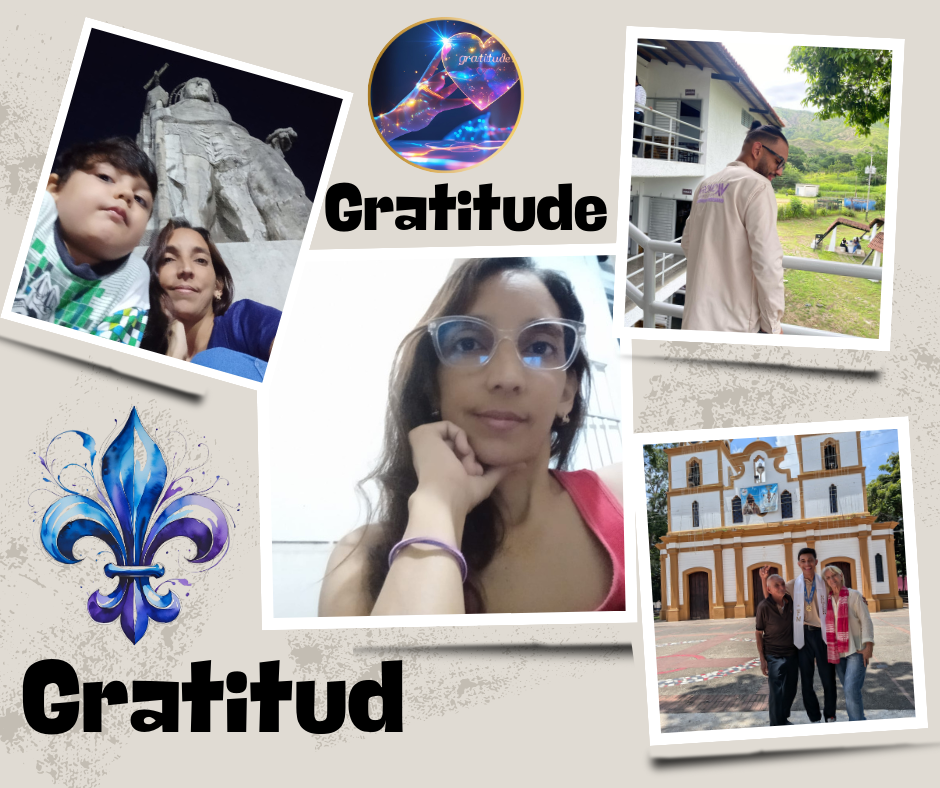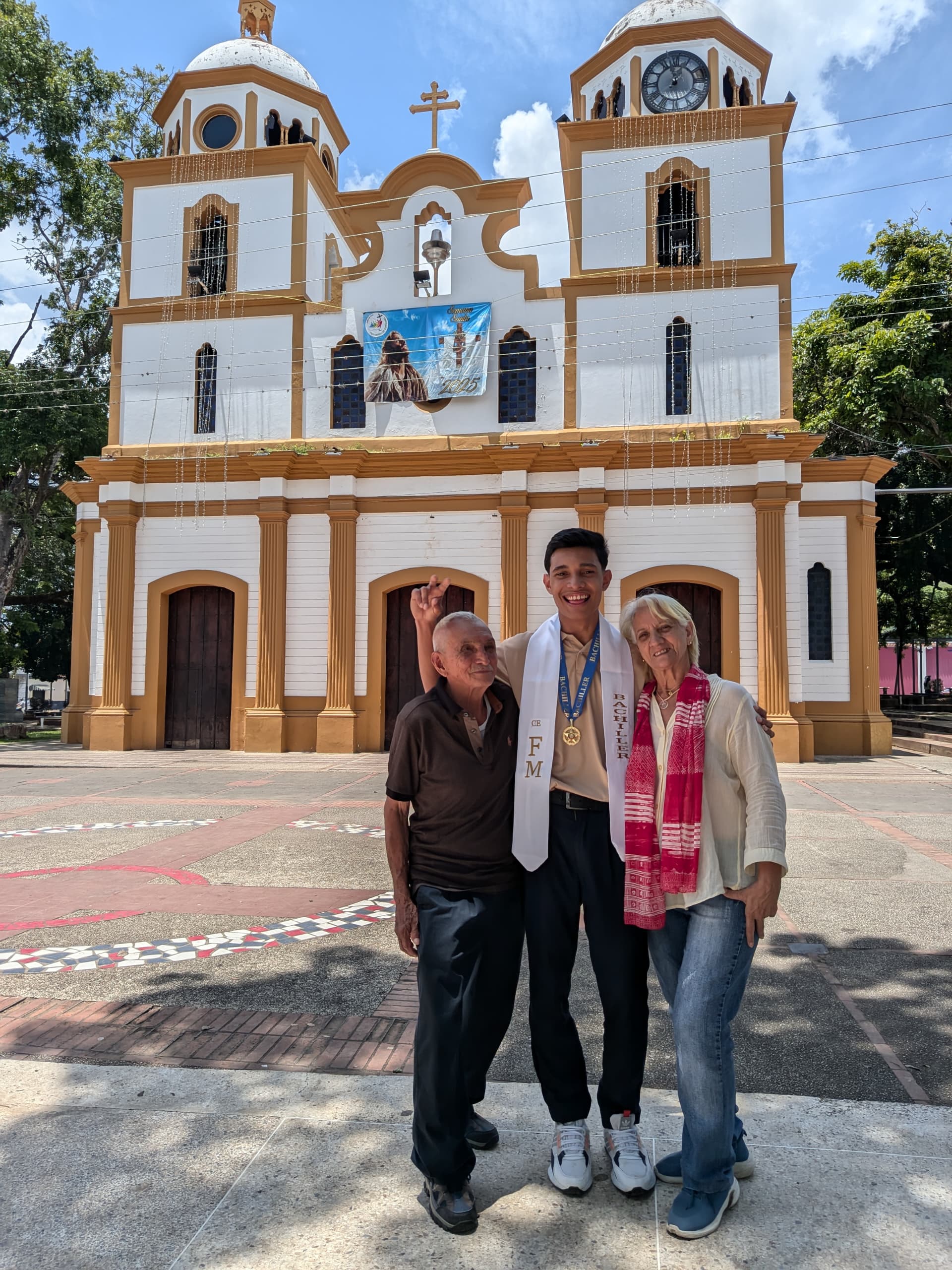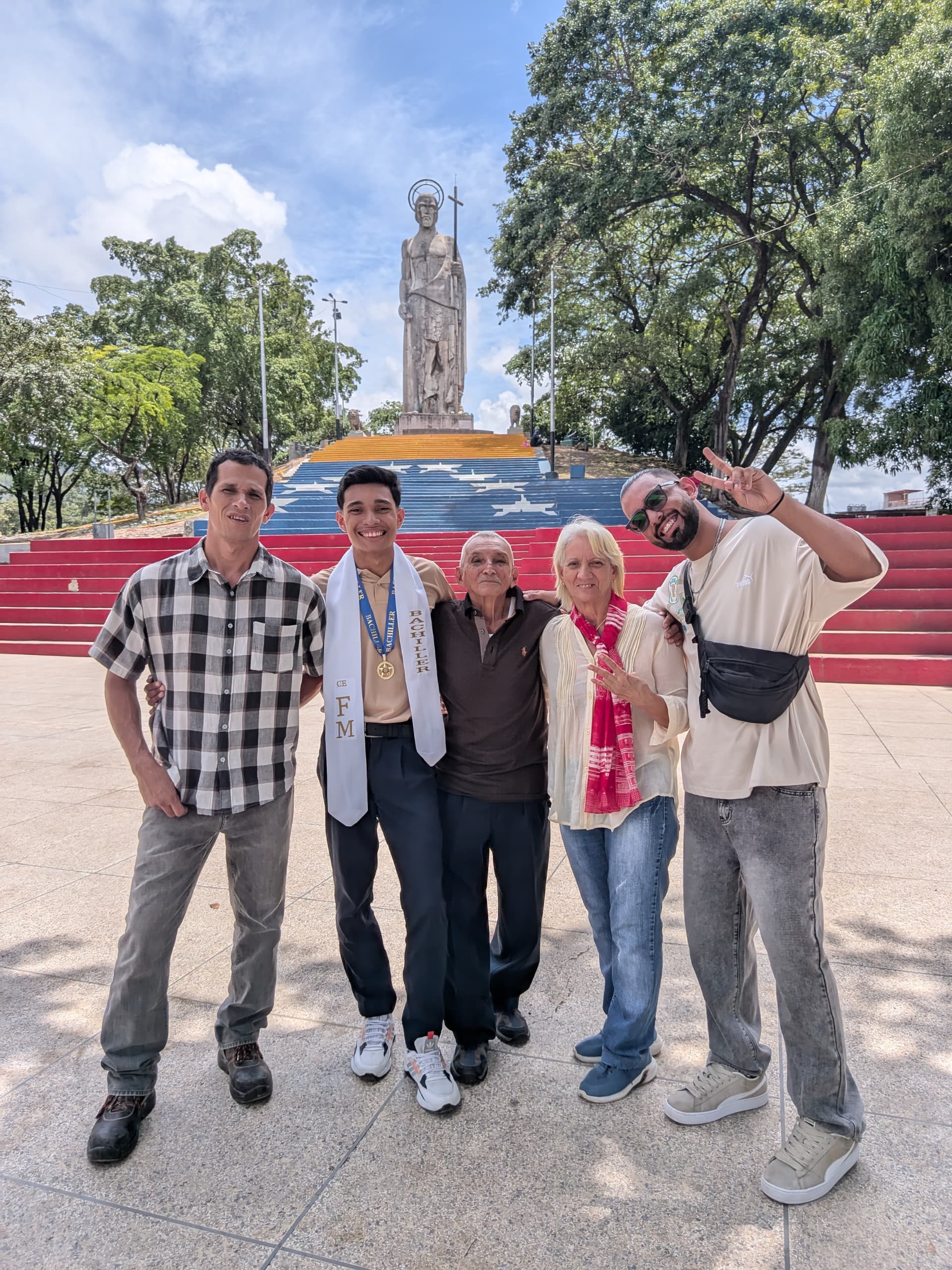
La gratitud no es solo un “gracias” pronunciado en voz alta.
¿Sabes qué tienen en común las personas más plenas? No es su éxito, ni su suerte; es su capacidad de agradecer lo invisible.
Es un estado interno, una forma de reconocer lo que recibimos de los demás y de la vida misma. Hoy agradezco contar con estos espacios que brinda @holos para el crecimiento, el encuentro y las dinámicas entres seres que no se conocen físicamente, pero que comparten esa magia de querer ser mejor que ayer.
Felicidades @abelarte por la maravillosa experiencia de Columnista por un día, les dejo su post original donde nos invita a reflexionar desde la Gratitud:
De las cosas sencillas se nutre el Alma:

Como no sentirse agradecida desde esta vista, a toda hora es un espectáculo de inmensa abundancia
A menudo, lo que agradecemos desde el Alma no son los grandes gestos, sino los pequeños detalles: un consejo oportuno, una palabra de aliento, una comida compartida, o incluso un silencio que acompaña. Ser agradecido significa ver lo invisible y dar valor a lo cotidiano.
Desde que tú y yo no éramos cuerpo y mente, la gratitud ha sido considerada una virtud esencial en la filosofía, la religión y la psicología. Aristóteles decía que la gratitud es la memoria del corazón. Pero lo más importante es que la gratitud cambia nuestra forma de interpretar la vida, alejándonos de la carencia y acercándonos a la plenitud.
No obstante, aunque todos sabemos que deberíamos ser agradecidos, muchas veces no lo somos. Surge entonces la pregunta inevitable ¿De dónde nace la ingratitud?
A mi parecer, algunas veces, la ingratitud nace del miedo a reconocer que necesitamos a otros, o a aceptar que no todo lo que tenemos depende únicamente de nosotros. Ese miedo hace que muchos prefieran callar, como si dar las gracias les hiciera vulnerables.
También la sociedad moderna nos empuja hacia la ingratitud. Vivimos en un mundo acelerado, que premia la productividad y la competencia. En ese ritmo frenético, agradecer parece innecesario, un gesto que no suma Resultados. Sin embargo, es justamente en esos entornos donde más falta hace la gratitud, porque nos recuerda que no somos máquinas, sino seres humanos interdependientes.
Te invito nuevamente a leer una interesante metáfora que nos deja @abelarte en su publicación, el ejemplo de las raíces y los frutos. Me dejo un resumen poderoso del sentido de la gratitud. Las raíces trabajan en silencio, invisibles, pero gracias a ellas el árbol florece y da alimento.
Muchas veces, las personas que más nos sostienen actúan como esas raíces. Padres que trabajan incansablemente, madres que cuidan sin esperar reconocimiento, amigos que nos acompañan en los momentos más duros. Ellos no piden recompensa, pero merecen gratitud. Cuando dejamos de agradecer, nos volvemos como ramas que olvidan de dónde viene su fuerza.

Mi hijo en su graduación con los abuelos maternos
Aprender a reconocer a nuestras Raíces es un acto de humildad. Es aceptar que no crecemos solos, que todo logro personal tiene detrás el apoyo de otros. Y cuando agradecemos, no solo damos un reconocimiento, sino que también fortalecemos ese vínculo invisible que nos conecta.
La gratitud no solo mejora las relaciones con los demás, también transforma nuestra vida interior. Al agradecer, la mente deja de enfocarse en lo que falta y se centra en lo que ya existe, lo cual genera una sensación de abundancia.
¿Por qué algunas personas temen agradecer?
Aunque la gratitud es poderosa, hay quienes sienten resistencia a expresarla. Algunos lo ven como una señal de debilidad, como si decir Gracias implicara deber algo. Este pensamiento nace de la creencia de que todo debe ser un intercambio de favores, en lugar de un gesto de amor.
Otros temen que al agradecer se acabe la magia. Piensan que si expresan demasiado lo que sienten, lo bueno se desvanecerá. Es una visión equivocada, porque la gratitud no resta, multiplica. Decir gracias no disminuye el momento, lo hace eterno.
También existe el ego como barrera. El ser autosuficiente no reconocer la ayuda de nadie. Pero la verdad es que todos necesitamos apoyo, y aceptarlo no nos hace menos, nos hace más humanos.
Gratitud más allá de la cortesía
Es una forma de vivir con conciencia, de reconocer que nada nos pertenece del todo y que la vida es un regalo constante. No siempre es fácil, porque la ingratitud puede aparecer disfrazada de miedo, costumbre o ego. Pero cuando elegimos agradecer, elegimos ver la belleza en lo que ya tenemos.
No podemos justificar la ingratitud, pero sí podemos entenderla. Comprender que a veces surge del temor o de la falta de conexión. Y desde esa comprensión, podemos cultivar más gratitud en nuestro propio corazón.
Si hoy no te agradecieron ese gran acto de amor, Elije avanzar y sé feliz. Eso no está en ti, esa semilla que no ha germinado está en otro.
¿Quién ha sido una raíz en tu vida que nunca agradeciste lo suficiente?
Gracias por leerme hasta el final.
Imágenes de mi propiedad tomadas con mi Redmi 10 A. Imagen de portada editada en canva
English version

Gratitude isn't just a "thank you" spoken out loud.
Do you know what the most fulfilled people have in common? It's not their success, nor their luck; it's their ability to be grateful for the invisible.
It's an internal state, a way of recognizing what we receive from others and from life itself. Today I am grateful for these spaces that @holos provides for growth, encounter, and the dynamics between beings who don't know each other physically, but who share that magic of wanting to be better than yesterday.
Congratulations @abelarte for the wonderful experience of Columnist for a Day. Here's her original post where she invites us to reflect on the grounds of gratitude:
The Soul is nourished by simple things:

How can you not feel grateful from this view, at all times it is a spectacle of immense abundance
Often, what we are grateful for from the Soul are not grand gestures, but rather small details: timely advice, a word of encouragement, a shared meal, or even a companionable silence. Being grateful means seeing the invisible and giving value to the everyday.
Since you and I were no longer body and mind, gratitude has been considered an essential virtue in philosophy, religion, and psychology. Aristotle said that gratitude is the memory of the heart. But most importantly, gratitude changes our way of interpreting life, moving us away from lack and closer to fulfillment.
However, although we all know we should be grateful, we often aren't. The inevitable question then arises: Where does ingratitude come from?
In my opinion, ingratitude sometimes stems from the fear of acknowledging that we need others, or from accepting that not everything we have depends solely on us. This fear causes many to prefer silence, as if saying thank you makes them vulnerable.
Modern society also pushes us toward ingratitude. We live in a fast-paced world that rewards productivity and competition. In this frenetic pace, giving thanks seems unnecessary, a gesture that doesn't achieve results. However, it is precisely in these environments where gratitude is most needed, because it reminds us that we are not machines, but interdependent human beings.
I invite you once again to read an interesting metaphor that @abelarte leaves us in her post, the example of roots and fruits. It leaves me with a powerful summary of the meaning of gratitude. The roots work silently, invisible, but thanks to them the tree flourishes and provides nourishment.
Often, the people who support us the most act like those roots. Fathers who work tirelessly, mothers who care without expecting recognition, friends who accompany us in the toughest times. They don't ask for reward, but they deserve gratitude. When we stop giving thanks, we become like branches that forget where their strength comes from.

My son with his older brother and maternal grandparents at his graduation
Learning to recognize our Roots is an act of humility. It means accepting that we don't grow alone, that every personal achievement is supported by others. And when we give thanks, we not only give recognition, but we also strengthen that invisible bond that connects us.
Gratitude not only improves relationships with others, it also transforms our inner lives. When we give thanks, the mind stops focusing on what's missing and focuses on what already exists, which generates a sense of abundance.
Why do some people fear giving thanks?
Although gratitude is powerful, there are those who resist expressing it. Some see it as a sign of weakness, as if saying Thank you implies owing something. This thinking stems from the belief that everything should be an exchange of favors, rather than a gesture of love.
Others fear that giving thanks will take away the magic. They think that if they express what they feel too much, the good will fade. This is a mistaken view, because gratitude doesn't subtract, it multiplies. Saying thank you doesn't diminish the moment, it makes it eternal.
There's also the ego as a barrier. Being self-sufficient means not acknowledging anyone's help. But the truth is, we all need support, and accepting it doesn't make us lesser, it makes us more human.
Gratitude Beyond Politeness
It's a way of living consciously, of recognizing that nothing truly belongs to us and that life is a constant gift. It's not always easy, because ingratitude can appear disguised as fear, habit, or ego. But when we choose to be grateful, we choose to see the beauty in what we already have.
We can't justify ingratitude, but we can understand it. We understand that it sometimes arises from fear or a lack of connection. And from that understanding, we can cultivate more gratitude in our own hearts.
If you weren't thanked for that great act of love today, choose to move forward and be happy. That's not in you; that seed that hasn't germinated is in someone else.
Who has been a root in your life that you were never grateful enough for?
Thanks for reading until the end.
Images my own, taken with my Redmi 10 A. Cover image edited in Canva